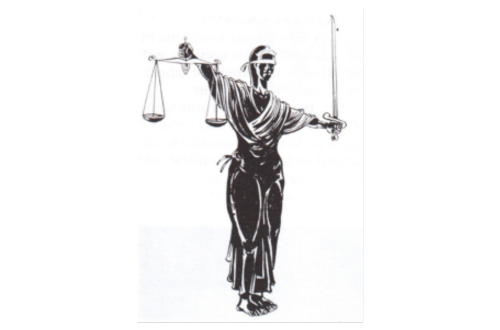
The Sri Lankan Government recently ratified the Optional Protocol on Civil and Political Rights, whereby individuals can appeal to the Geneva-based Human Rights Committee, a major United Nations (UN) mechanism set up to protect fundamental rights.
Mrs X and Mrs Y, both residents of Kandy had been labouring under a grievance for a long time. Both are married to foreign nationals, have children from the marriages and are resident in Sri Lanka. They complained bitterly that according to Sri Lankan immigration laws, their husbands had no permanent resident status in the country. This was inspite of the fact that they themselves were Sri Lankan nationals. What was unfair about this situation was that the same did not apply to foreign nationals married to Sri Lankan men.
Come 1997 and the two aggrieved spouses may well have a more flamboyant remedy in hand rather than the local courts, hamstrung by always having to operate within the ambit of the existing laws, however unjust they may be. Given sufficient determination not to mention financial resources, they could appeal to the Geneva-based Human Rights Committee, asking that Sri Lanka be directed to amend the offending laws. This follows a recent decision by the cabinet to ratify the Optional Protocol on Civil and Political Rights, a major UN mechanism set up to protect fundamental rights.
Indeed, if Mrs X and Mrs Y does decide to appeal, they have an interesting precedent to follow. In the Mauritian Women case, the committee had already considered similar discriminatory immigration laws enforced by the Government of Mauritius. In addition, in this instance, alien husbands of Mauritian women were liable to be deported under a ministerial order that was not subject to review by the courts. The committee declared the laws to be invalid. Subsequently, Mauritius amended the laws so as to comply with the recommendations of the committee.
This move of the Sri Lankan Government to satisfy the Protocol is bound to have significant repercussions in the South Asian subcontinent. Up to now, only Nepal has satisfied the Protocol region wise. India, Sri Lanka and Pakistan all having same ethnic and terrorist tensions have resisted satification so far. Sri Lanka’s decision to bring herself within the Protocol is therefore a bold decision, calculated to catch the attention of the international community.

The Optional Protocol allows individuals to appeal to the United Nations (UN) Human Rights Committee against state violation of certain basic fundamental rights. It is an important mechanism for ensuring that countries live up to their promises made with great pomp and fervour at an international level. In the UN Charter, all member governments “pledge themselves to take joint and separate action to promote higher standards of living… development… solutions of international economic… and related problems; and…..universal respect for and observance of human rights and fundamental freedoms.”
Much of this glorious language however fades away when it comes to implementation on a domestic plane. The United Nations has therefore devised several mechanisms to ensure state obedience Under both the Political and Economic covenants, States have to report periodically on the manner in which they have implemented provisions of the governments. Sri Lanka presented its third periodic report under this procedure to the Human Rights Committee in June last year. But once ratification of the Protocol is complete, the country’s laws, regulations and practices will be brought under a more extensive scrutiny. Moreover, a little realized fact is that this applies not only to well-known civil and political rights such as the right to life, the right to freedom from torture and the right of free speech but to a wider catalogue of rights including to a certain extent, economic, social and cultural rights This is mainly due to an ambitious interpretation of the covenant by the committee in such a manner, as to allow petitions based on even economic rights to come before it. In principle, an individual petition must be based on a right set out in the covenant. These in general relate to civil and political freedom. But the covenant also contains a provision that all laws should be nondiscriminatory (Article 26). This has been used by individuals to put forward petitions relating to social security, immigration and taxation.
A particularly striking example of this was the number of petitions brought against the Netherlands, in which certain social security and welfare legislations were challenged. The individual petitioners argued that the Dutch Unemployment Benefit Act of 1976, violated Article 26 of the covenant. They pointed out that the Act was discriminatory because it denied them certain benefits on the basis that they were not the “breadwinners” of their respective families. The same disability did not apply to married men however.
The Netherlands Government retorted that social security was not an issue that could be adjudicated under the covenant.
“…. the nature and substance of social, economic and cultural rights makes them unsuitable for judicial review of a complaint lodged by the state or by an individual”, it said.

The Human Rights Committee did not agree. It explained that the political covenant does not require a state to enact legislation to provide for social security. However, when such a legislation is adopted, then the state should comply with the covenant and be non-discriminatory. The committee went on to state that the laws in question were contrary to international norms, because the differentiation between married men and married women was not reasonable and was therefore discriminatory. It should be noted that the political covenant forbids discrimination on grounds of not only sex, but also on grounds of property, national or social origin, race, colour, language, religion, political or other opinion, birth or other status. The ambit of the bar is therefore extremely wide. Meanwhile, the other manner in which ratification of the Protocol could have an important effect on economic decision-making in the country, could be through the right of freedom and association including the right to form and join trade unions which the political covenant explicitly protects. This right is legitimately restricted in the interests of national security, public safety, public order and the protection of public health and morals.
It should not however be thought that there is a danger of floodgates being opened once individuals are permitted to petition the Human Rights Committee. One effective safeguard against this is that all domestic remedies must be exhausted before an appeal is made. For example, a matter still under consideration by the Supreme Court of Sri Lanka cannot be taken to Geneva The highest court of the land must first give its decision on the matter. The position must moreover comply with a number of procedural requirements set out in the covenant.

After considering the petition in closed meetings, the committee would forward its views to the state concerned and the complaining individual. In the past, the committee has showed its displeasure over particular state actions in diplomatic but forthright terms.
Strictly speaking, even after the committee forwards its recommendations to the state concerned, the government can still refuse to give effect to the views of the committee. Few countries are however so arrogant. Quite apart from the entire weight of the United Nations being behind the committee as a body, its individual eighteen members are all renowned internationally, most of them famous legal names in their own right. One Sri Lankan academic J A C Cooray had the distinction of serving a term on the committee in the late 1980’s. Members of the committee are elected by secret ballot by state parties to the covenant at meetings convened by the Secretary General of the United Nations A contrary decision by the committee against a particular state can therefore contribute in no small measure to world disfavour towards the renegade nation, not a fate to be lightly courted in today’s global village. Examples abound of instances where states have complied with recommendations of the committee. These include countries as diverse as Finland, Jamaica, Mauritius, Canada, France, Italy, Norway, Denmark Nerther-lands and Sweden.
Compliance with international fundamental rights standards has today become not a luxury but a necessity for most countries. Only an actor bestriding the world stage like the United States can afford to hold herself aloof from the universal standards laid down by the United Nations. The United States has adopted this position on the argument that her domestic laws are every bit as good as those laid down by the United Nations. But other countries cannot afford to be so elitist. It has been long since vital economic decisions of the international community have been made, depending on a country’s human rights record.
Sri Lanka’s decision to ratify the Optional Protocol cannot therefore be but commended in the most favourable of terms. It shows her willingness to be questioned regards her human rights record. It indicates that even given the most vicious of wars within her sovereign boundaries, Sri Lanka still looks ahead to a better and brighter future.






